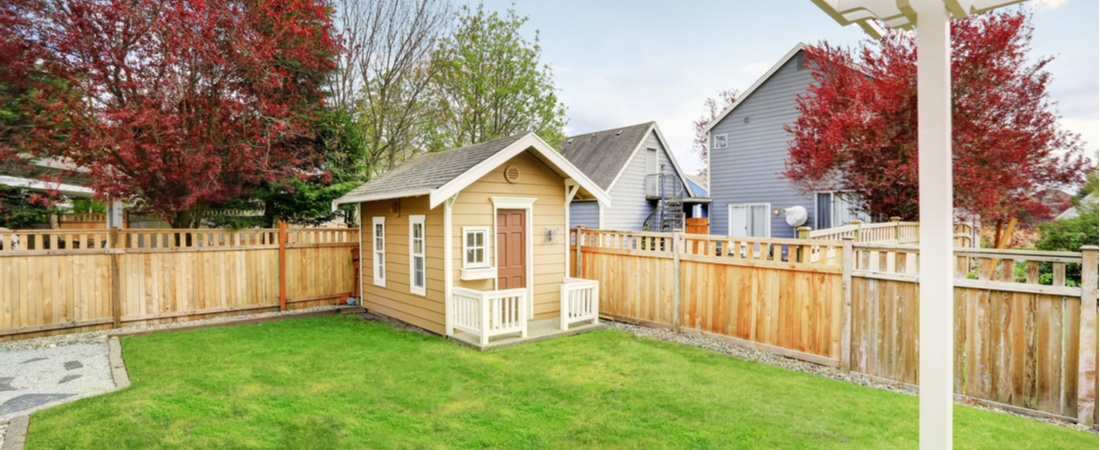What do you need a permit for? Home improvement projects you need permits for, how to get them and what could happen if you get the work done without one.
The sun is shining, the birds are chirping, the snow is finally melting — and it’s the perfect time to start planning your next home improvement project. Your next step is one that many homeowners completely forget about: Figuring out what type of permit you might need to pull.
Alissa Thompson, VP of Operations of Cornerstone Managing Partners (CMP), a full-service company that offers construction management and general contracting, helps homeowners understand what permits are necessary for certain types of home improvement projects, how to get them and what could happen if work is done without getting the proper permit.
We spoke with Alissa Thompson about the process of getting a permit, what projects require permits, and when homeowners could get into hot water by not pulling a permit.
What Do I Need a Permit For?
Alissa Thompson: I like to tell people that we work with to step back and do some research when it comes to starting your home improvement project and assessing what you need. Every jurisdiction is slightly different, but traditionally, any new construction or alteration to an existing building specifically that’s requiring structural, plumbing, mechanical or electrical work requires a permit. If you’re in a very [expensively-built] home that has elevators or you’re in an apartment building, those areas really require permits. One project that’s typically different in California is that if you’re installing fire sprinklers, that doesn’t always require a permit.
Where Do I Get a Permit?
Alissa Thompson: On your city’s website, you can look up the permit page to really help you understand what the requirements are and who the requirements go through. If you live in an association, we also recommend looking at homeowners association rules and declarations because they may have restrictions on the kinds of alterations you can make (whether or not the city will allow you to pull a permit for that project).
Depending on the project you could be spending a lot of time at city hall. Different departments issue different permits. For example, a lot of times putting in a pool or doing a renovation to an existing pool requires a permit from the health department.
Some municipalities list companies you can use to help you navigate the permit process and pull the permits for you. We use Permits In Motion in San Diego. The general contractors who work in your area are another great resource. You tell them you want to do this job by the book and ask them to help you understand what permits you need to make sure it’s done up to code. If you hire a general contractor, a lot of times they’ll actually pull the permit for you.
How Much Do Permits Cost?
Alissa Thompson: It depends on the size of the project. A permit for a small project, let’s say putting up a shed in your backyard, will cost you a couple of hundred bucks. On the large scale side, if you’re building a development the permit could cost a couple of million dollars depending on how large the project is.
But really, for homeowners doing a renovation or adding onto their home or even building a new home, the permit fee really comes down to how many different trades are involved, like if there’s a structural or electrical inspector, and how frequently the city inspector needs to come out and inspect the property again. Typically it’s a few thousand dollars for the permit for a home renovation. I’ve seen kitchen rebuild permits pulled probably $800 to $1200.
What’s the Worst That Could Happen If I Don’t Get a Permit?
Alissa Thompson: We always get the question of “Do I really have to pull a permit?” and in our experience, you really want to weigh the consequences of what you’re doing. We recommend our clients analyze what the downstream impact is.
If a client says “Hey, I’m putting up a shed. It’s not impacting anyone. There’s not even any plumbing or electrical,” but they haven’t looked into neighborhood association rules or city rules for requiring permits, doing that work could have consequences down the road. They might not be aware of a rule regulating how far a shed has to be off the property and if it’s not built within those restrictions it might need to be torn down or could complicate a future sale.
Condos and apartment buildings will order a multi-million dollar piece of equipment, like new boilers to place on a roof, and they eventually have to recycle or auction that equipment off because they didn’t go about it the right way and get the proper permit. We’ve seen residential buildings that are trying to cut corners when putting in staircases and balconies that later have to be torn down and replaced because they weren’t built to code, and those projects can cost millions of dollars depending on how large scale it is.
When it’s a single-family home or a condo, most permit issues come from a neighboring homeowner who’s upset about the work being done and they call the city and complain about it. We’ve seen home sales fall through because someone did some work on their home and didn’t get a permit for it.
In the long run, while it can be annoying and take more time, getting a permit protects your property value by making sure the job is done right.
This interview was edited for clarity and length.
Read More on Topics Related to Home Improvement
Top 10 Most Profitable Home Renovations
Home Renovation Costs for 2020
Top Kitchen Trends to Watch in 2020
5 Top Home Design Trends from Industry Insiders
Top 10 Home Design Trends for 2020
Home Improvement: What’s Most Valuable for Resale?







Leave A Comment